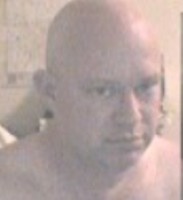Gays in the Military
 Would Alan Turing, who helped win World War II for the Allies by cracking Nazi codes, be considered too "immoral" to serve in the U.S. military? That's a question posed by Republican former U.S. Sen. Alan Simpson.
Would Alan Turing, who helped win World War II for the Allies by cracking Nazi codes, be considered too "immoral" to serve in the U.S. military? That's a question posed by Republican former U.S. Sen. Alan Simpson.
Simpson cited the late gay British mathematician in his criticism of the recent "homosexuality is immoral" comment from Marine Gen. Peter Pace, chairman of the Joint Chiefs of Staff.
In a op-ed for the Washington Post printed Wednesday, Simpson, of Wyoming, cited the accomplishments of Turing, who committed suicide in 1954 after he was convicted of "gross indecency" for having a gay relationship.
"In World War II, a British mathematician named Alan Turing led the effort to crack the Nazis' communication code," Simpson wrote.
"[Turing] mastered the complex German enciphering machine, helping to save the world, and his work laid the basis for modern computer science. Does it matter that Turing was gay? Would Pace call Turing 'immoral'?"
"More than 1,000 service members were discharged each year from 1997 to 2001 -- but in the past five years that number has fallen below 730," Pentagon officials said in a statement.
Turing is recognized for his scientific and mathematical research, which led to the creation of personal computers, as well as his code-cracking. However, his life was tainted by tragedy. Despite his prominence and success, he was arrested in 1952 for being gay and, rather than going to jail, agreed to be injected with hormones in a bid to change his sexuality.
He killed himself two years later by eating an apple he had injected with cyanide, although this finding was contested by his mother, who claimed his death was the result of an experiment gone wrong.


![send this ringtone to my mobile phone with MyxerTones [send ringtone]](http://www.myxertones.com/news/images/tags/sendmyxertonebutton3.gif)











No comments:
Post a Comment